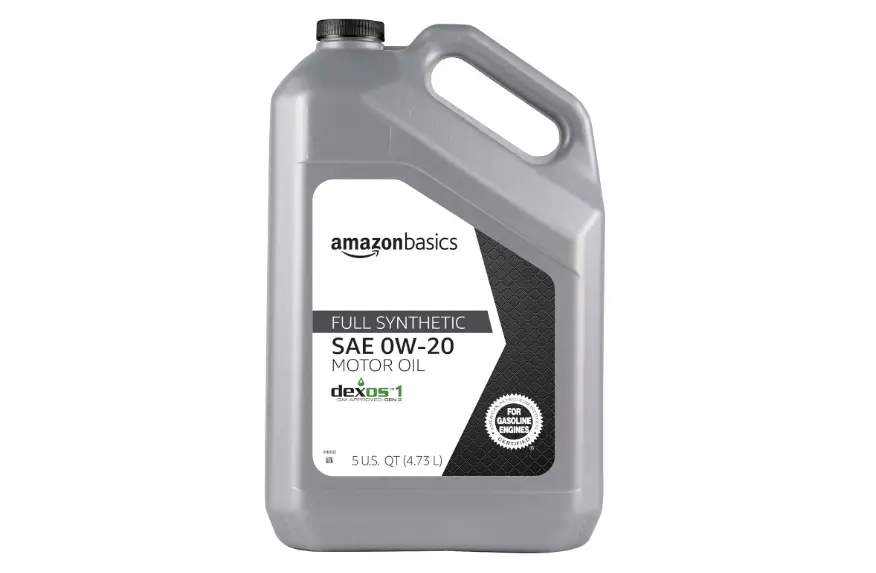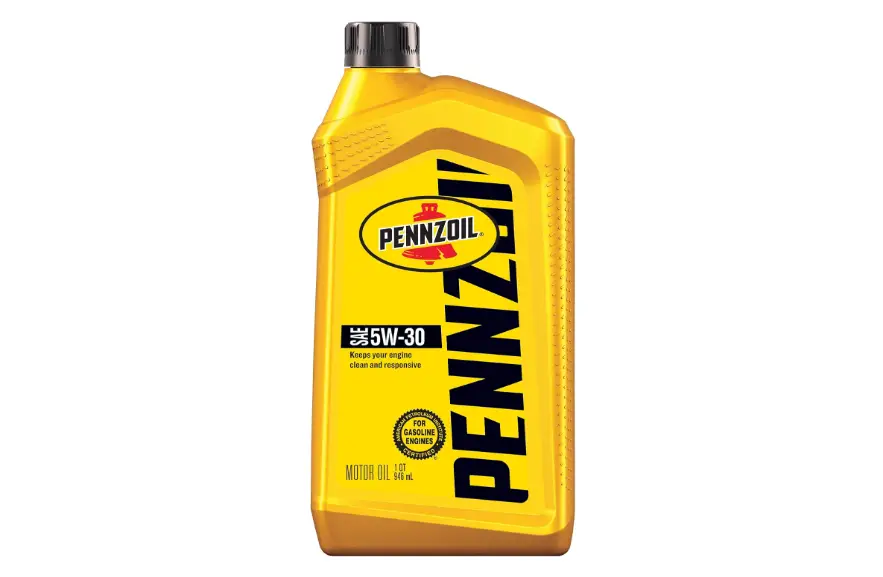Yes, engine oil can expire over time. While the base oil remains stable, the additives that enhance its performance degrade due to factors like oxidation, exposure to air, moisture, and temperature fluctuations. This reduces the oil’s effectiveness in protecting the engine. Generally, unopened engine oil can last 3-5 years for conventional oils and up to 5-8 years for synthetic oils, depending on storage conditions.
Engine oil is one of the most critical fluids in a vehicle, responsible for lubricating engine parts, reducing friction, cleaning, cooling, and preventing wear. Regular oil changes are vital to maintaining engine health, but what happens to engine oil when it sits unused? Does engine oil expire? Understanding the shelf life of engine oil can help you make informed decisions about oil storage, usage, and when to replace it.

Contents
What is Engine Oil Made Of?
Before diving into whether engine oil expires, it’s helpful to understand its composition. Engine oil is primarily composed of:
- Base Oil: Makes up the bulk of the engine oil and can be either synthetic or mineral-based.
- Additives: Various chemicals are added to improve performance, including:
- Detergents and dispersants (to prevent deposits and sludge formation)
- Antioxidants (to slow down oil oxidation)
- Anti-wear agents (to protect metal surfaces)
- Viscosity index improvers (to ensure oil maintains proper thickness at different temperatures)
These additives are essential to the oil’s performance, but they also degrade over time, which brings us to the concept of oil expiration.
Does Engine Oil Expire?
Yes, engine oil can expire over time. While oil does not have a strict “expiration date” like food or medication, its components, especially the additives, degrade over time. This degradation reduces the oil’s effectiveness in protecting your engine. The base oil itself is relatively stable and can last for years, but the performance-enhancing additives are susceptible to breakdown.
Factors that contribute to engine oil expiration include:
- Oxidation: Exposure to oxygen causes the oil to oxidize, which leads to the formation of sludge and varnish. Oxidation can occur even if the oil is sealed in its container.
- Additive Breakdown: The additives that improve oil performance degrade over time, especially when exposed to temperature fluctuations, moisture, and air.
- Contamination: Moisture, dust, and other contaminants can enter the oil container, even if it’s sealed, and reduce the oil’s quality.
- Temperature and Light Exposure: Prolonged exposure to extreme temperatures or direct sunlight can cause chemical changes in the oil, accelerating the breakdown of additives.
Shelf Life of Engine Oil
The typical shelf life of engine oil varies depending on the type of oil and how it’s stored:
- Conventional (Mineral) Oil: Generally, unopened conventional oil can last for about 3-5 years, depending on the storage conditions. Once opened, the oil’s lifespan decreases because it is exposed to air and moisture.
- Synthetic Oil: Synthetic oils, made from chemically engineered compounds, generally have a longer shelf life than conventional oils. Unopened synthetic oil can last around 5-8 years, again depending on storage. Synthetic oils are more resistant to oxidation and breakdown, making them more durable.
- Blended Oils: Semi-synthetic oils, which combine both conventional and synthetic base oils, typically have a shelf life between that of conventional and fully synthetic oils (around 4-6 years).
How to Tell If Engine Oil Has Expired
If you’re unsure about the condition of your engine oil, here are a few signs that it may have expired:
1. Color and Clarity
Fresh engine oil is typically amber or light brown in color. Over time, oil that has expired may become darker, thicker, and cloudy. The breakdown of additives and the presence of contaminants can cause discoloration.
2. Texture
Expired oil may feel gritty or sludge-like, which indicates that contaminants or oxidation have degraded the oil’s consistency. Good oil should feel smooth and fluid to the touch.
3. Smell
If the oil has an unpleasant, rancid odor, it could be a sign that it has oxidized or that the additives have broken down. Fresh oil has a mild, neutral smell.
4. Sedimentation
Look for any sediment or particles at the bottom of the oil container. This can indicate that the additives have separated from the base oil or that contaminants have infiltrated the oil.
5. Check the Manufacturer’s Date
Most engine oil containers come with a manufacturing date printed on them. If your oil is several years old, it’s likely time to replace it, even if it hasn’t been used.

Best Practices for Storing Engine Oil
To maximize the shelf life of your engine oil, follow these best practices for proper storage:
1. Store in a Cool, Dry Place
Heat accelerates the breakdown of oil additives, so it’s important to store engine oil in a cool, dry environment, away from direct sunlight and heat sources. Ideal storage temperatures range between 40°F and 80°F (5°C to 26°C).
2. Keep the Container Sealed
Once opened, engine oil is exposed to air, which can lead to oxidation and contamination. Make sure to tightly seal the container after every use to minimize exposure to moisture and air.
3. Avoid Extreme Temperature Fluctuations
Temperature swings can cause condensation inside the container, leading to moisture contamination. Storing oil in a stable environment with consistent temperatures will help preserve its quality.
4. Use Proper Containers
Always keep engine oil in its original container, which is designed to keep out contaminants. If you must transfer the oil to another container, ensure that it’s clean and airtight.
5. Check for Expiry Dates
While engine oil doesn’t usually come with a specific expiration date, most manufacturers recommend using the oil within 3-5 years of the production date. Some oils may include a “best before” date to give you an idea of its usability.
What Happens If You Use Expired Oil?
Using expired oil can lead to several engine-related problems. Here’s what can happen if you use oil that has gone bad:
- Decreased Lubrication: Over time, the oil’s viscosity may change, making it less effective at lubricating engine components. This can lead to increased friction, wear, and damage to engine parts.
- Sludge and Deposits: Expired oil may form sludge and deposits in the engine, clogging oil passages and reducing efficiency. This can lead to overheating and other engine performance issues.
- Reduced Oil Flow: Expired oil can become thicker and may not flow through the engine properly, leading to poor circulation and potential damage to key engine components.
- Increased Engine Wear: The breakdown of additives means that expired oil won’t protect against corrosion, rust, or wear as effectively, leading to premature engine aging.
If you suspect your engine oil is expired, it’s best to replace it with fresh oil to ensure optimal performance and longevity of your engine.
Frequently Asked Questions
Here are some FAQs about engine oil expiration –
1. How long does engine oil last once opened?
Once opened, engine oil can last for about 6 months to 1 year, depending on how well it is stored. Exposure to air, moisture, and contaminants can accelerate the degradation of the oil. To extend its life, always tightly seal the container and store it in a cool, dry place.
2. Can synthetic oil expire?
Yes, synthetic oil can expire, although it typically has a longer shelf life than conventional oil. Unopened synthetic oil can last between 5 and 8 years. However, once exposed to air, even synthetic oil will begin to degrade, especially the additives within it.
3. What happens if I use expired engine oil?
Using expired engine oil can lead to poor lubrication, sludge buildup, and increased engine wear. The oil may lose its protective properties, making it less effective at preventing rust, corrosion, and friction within the engine. This can result in engine damage and reduced performance.
4. Does engine oil expire in the engine?
While engine oil doesn’t expire in the same way inside the engine as it does on a shelf, it degrades over time due to heat, pressure, and contaminants from combustion. This is why regular oil changes are recommended, typically every 5,000 to 7,500 miles, depending on the type of oil and driving conditions.
5. How can I extend the shelf life of my engine oil?
To extend the shelf life of your engine oil, store it in a cool, dry place, away from direct sunlight, moisture, and temperature fluctuations. Keep the container tightly sealed when not in use and avoid exposing the oil to contaminants. Always check the production date and use oil within the recommended timeframe.
Conclusion
Engine oil can indeed expire, largely due to the breakdown of additives and exposure to environmental factors such as air, moisture, and temperature. While the base oil remains stable for years, the performance-enhancing properties of the oil diminish over time, potentially compromising your engine’s health. Always check the condition of stored oil before using it, and when in doubt, it’s best to replace it with fresh oil to avoid engine damage.